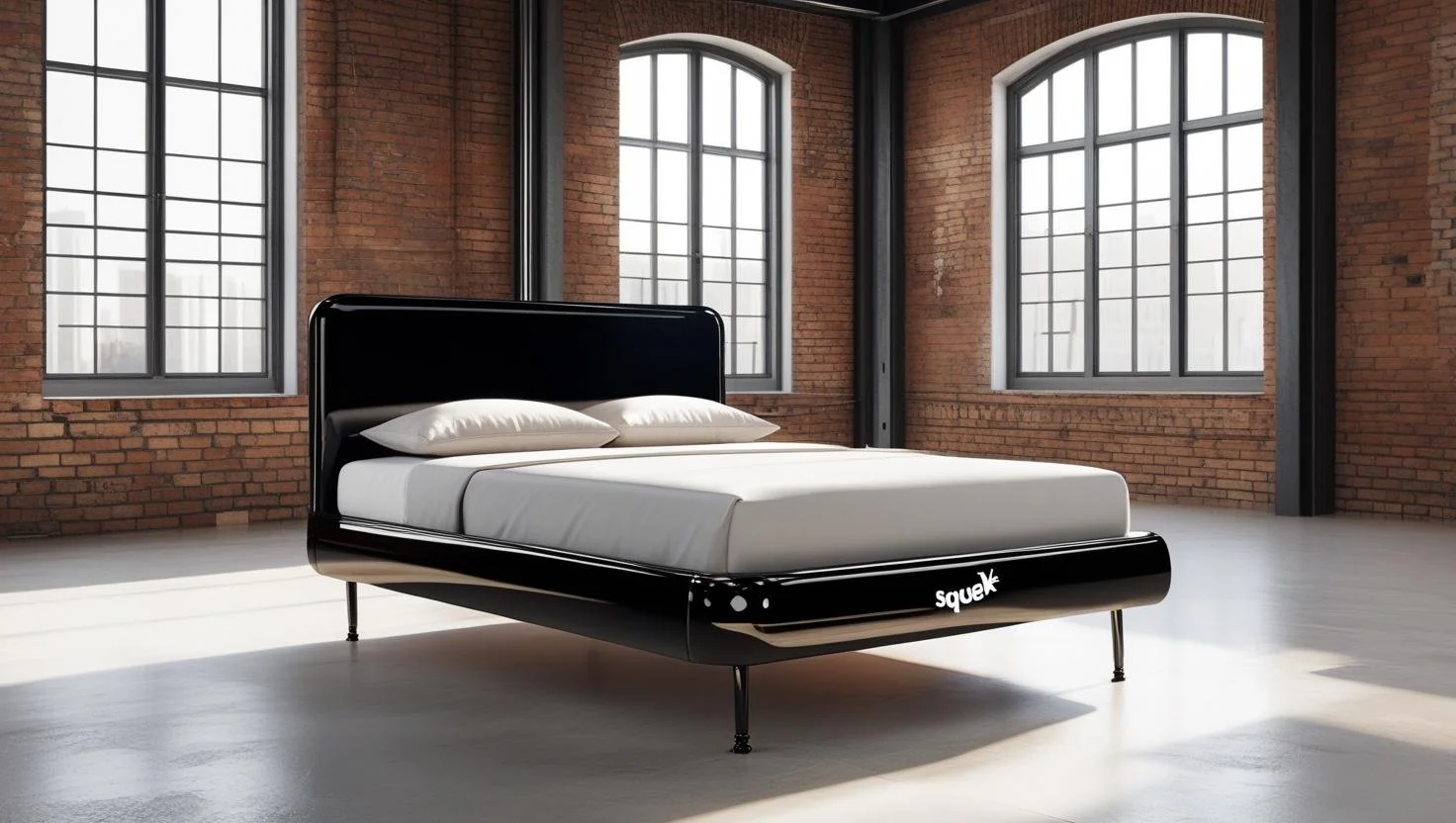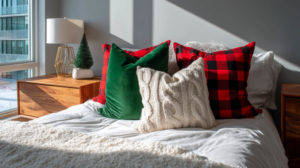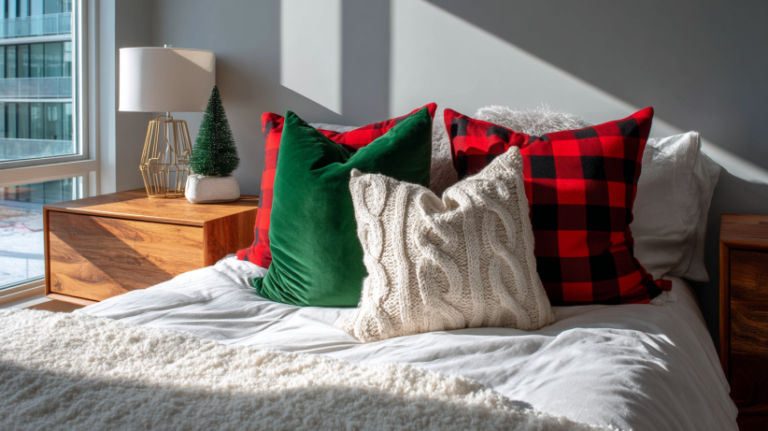Fixing Mattress and Bed Frame Noise Problems
Mattress and bed frame noise isn’t just annoying—it can wreck your rest. These proven fixes bring back silence and deeper sleep. For broader tips, see our
squeaky bed frame guide.
Key Takeaways
- Tighten screws and bolts to stop the most common cause of bed frame noise.
- Use padding to eliminate friction at metal or wooden joints.
- Mattress and bed frame noise can come from slats or worn-out coils.
- Lubricate metal joints to prevent squeaks in metal frames.
- Know when it’s time to replace an old frame or mattress.
Why Bed Noise Matters More Than You Think
Sleep fuels mental clarity, mood, and recovery. According to the
Sleep Foundation
and CDC Sleep Resources,
even low-level noise disrupts deep sleep. If your bed is the culprit, the effects compound night after night.
Imagine finally settling into bed, only for every toss to trigger creaks. Over time, those subtle sounds build frustration and fatigue. Removing them restores your bedroom sanctuary.
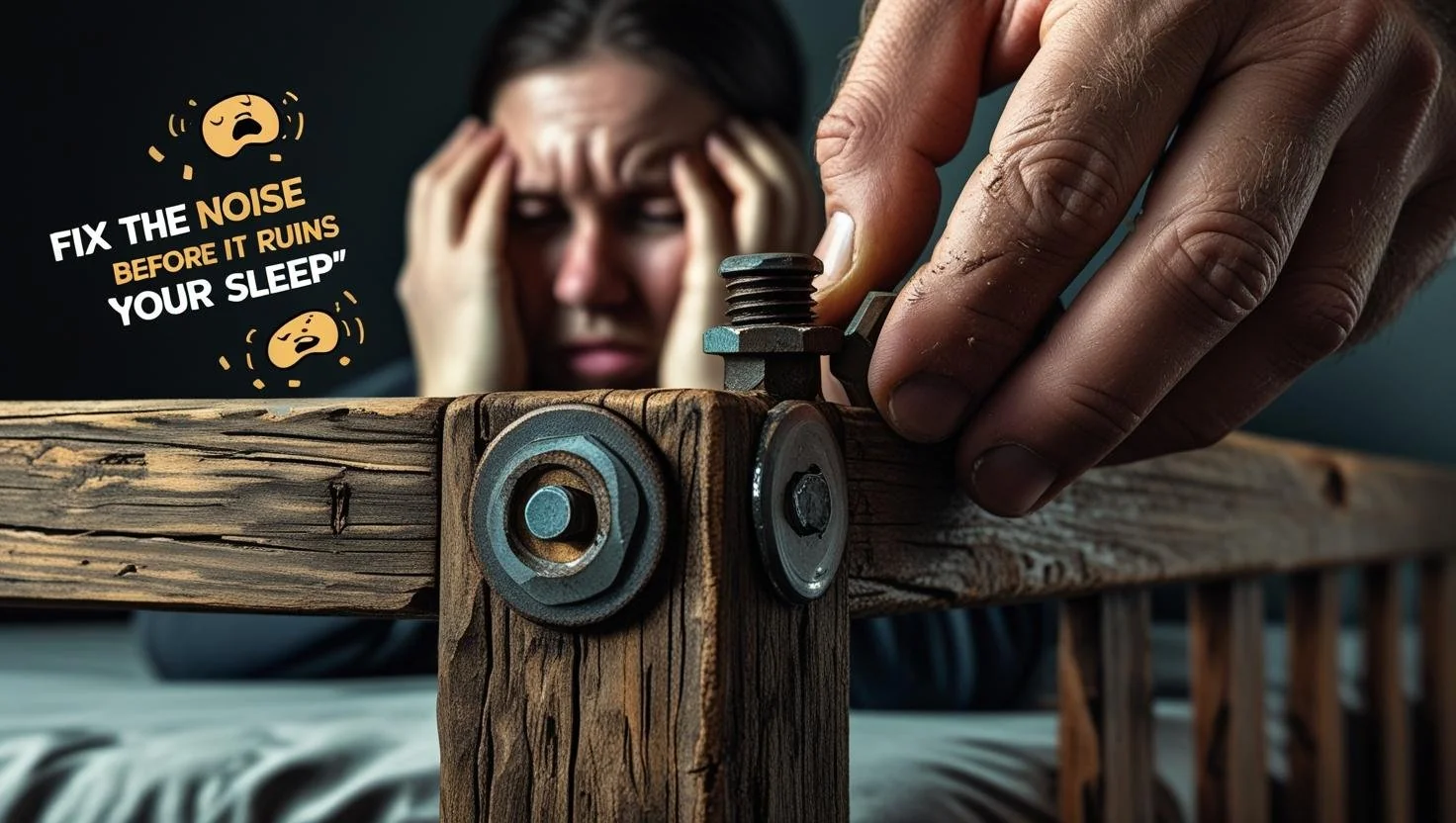
Common Mattress and Bed Frame Noise Fixes
These DIY solutions can transform your noisy setup into a calm, sleep-friendly space. Most take less than an hour.
1. Tighten Up Loose Screws and Bolts
Loose hardware is the #1 cause of squeaks. Grab a screwdriver or wrench and secure all joints. For lasting quiet, add thread-lock adhesive.
2. Add Padding Between Contact Points
Metal-on-metal or wood-on-wood friction causes squeaks. Place felt pads, rubber washers, or fabric scraps at contact points. Even an old sock between frame and foundation can help.
For extra hacks, see The Spruce’s noise guide.
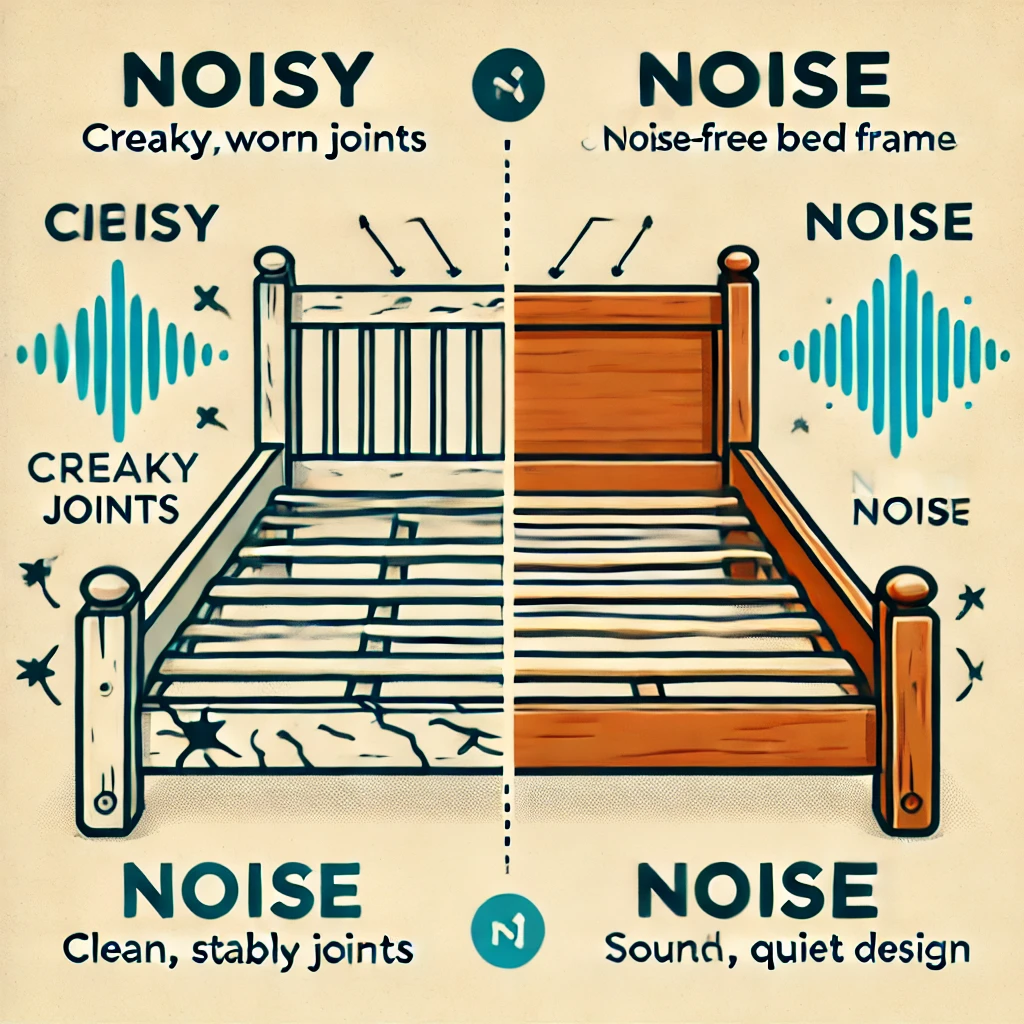
3. Check the Bed Slats
Slats that shift or sag create thuds. Use Velcro strips or tape to secure them. Warped slats? Replace with stronger wood for stability.
4. Fix the Mattress, Too
Old innerspring mattresses creak as coils wear out. Rotate or flip to extend life, or upgrade to memory foam or latex. Both are naturally quieter.
See our full mattress noise guide
or GQ’s tips for deeper advice.
5. Lubricate Metal Joints
For metal frames, apply WD-40 or silicone lubricant at hinges and joints. Wipe away excess to avoid odors or stains.
Learn more in our metal squeak guide.
When to Replace Instead of Repair
If your mattress is 8–10 years old or your frame is cracked, repairs won’t cut it. New, certified materials offer quiet, supportive sleep.
Check certifications like CertiPUR-US to ensure safe, durable foam.
For eco-conscious choices, see Happsy Certifications.
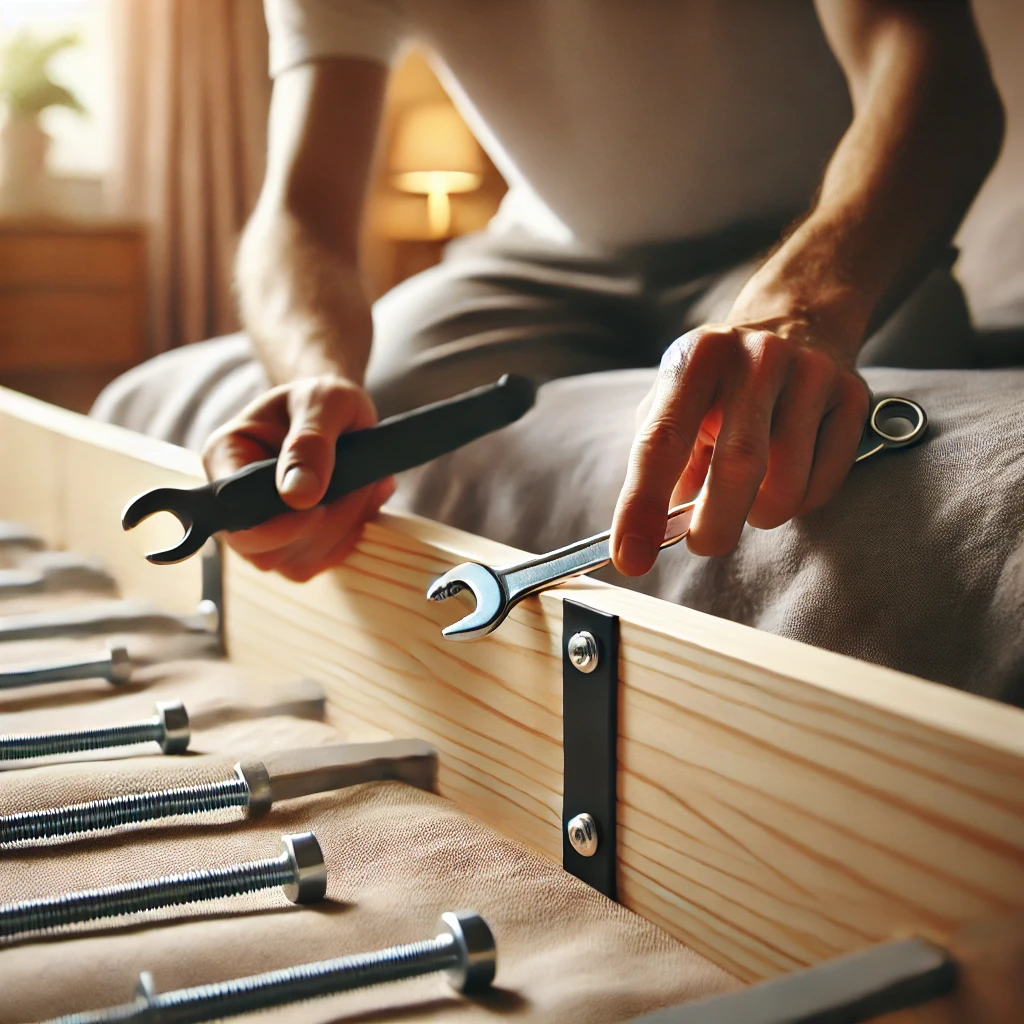
FAQ
Is it normal for new beds to be noisy?
Yes. Wood frames may creak as they adjust to humidity. Usually, tightening and padding solve it quickly.
Will a box spring make things worse?
Only if it’s worn out. A high-quality box spring adds support and quiet. For fewer noises, try a platform base.
What’s the quietest type of bed frame?
Upholstered or solid wood platform beds are quietest. Avoid thin metal frames with many joints.
Wrap-Up: Time for Silent Nights
Mattress and bed frame noise doesn’t have to disrupt your rest. With a few quick fixes—or the right upgrade—you can reclaim peace and deeper sleep.
Explore our full mattress and frame guide
or compare metal vs wood frame noises.
